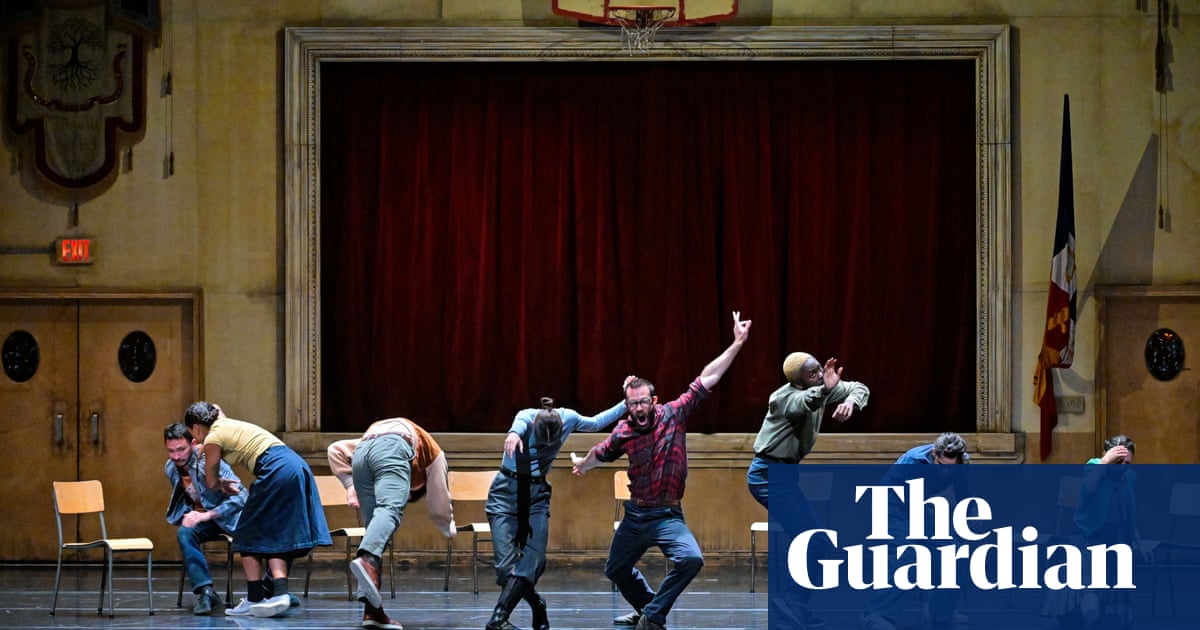Actors and directors have protested on stage during the Edinburgh festival after anger about proposed cuts to Scottish arts funding escalated into open revolt.
Protest messages were read out after performances, including at the Traverse, Lyceum, George Square, Summerhall and Church Hill theatres, to loud applause from audiences, as thousands of artists and performers signed an open letter calling for the cuts to be reversed.
The Scottish arts world is in uproar after it emerged on the eve of this year’s festival that Creative Scotland faces cuts of up to £10m this year, amid widespread spending reductions across the public sector following the general election.
The hashtag #NoArtWithoutArtists trended on social media after directors such as Cora Bissett and the former Creative Scotland chief executive Andrew Dixon urged Scottish government ministers to protect the agency’s budgets.
The open letter was signed by the Succession star Brian Cox, the comedian Phill Jupitus and Vicky Featherstone, the former artistic director of the Royal Court theatre.
Bissett, whose current production is a homage to the country music star June Carter Cash, said the situation was critical after lifeline funding for freelance artists and performers was frozen. Dixon, now an adviser on European city of culture bids, said the cuts were “shameful”.
Complaints about the cuts surged last week when it became clear Creative Scotland was closing its open fund for individual artists, worth £3m, to all new applicants on 30 August as it tried to absorb cuts to its in-year budgets.
Shona McCarthy, director of the Edinburgh festival fringe, said it was “essential” that Scottish ministers meet arts leaders to discuss the crisis before their final spending decisions in October.
“The risk has just been dramatically escalated by the closure of the open fund, it is the essential fund, the only fund for supporting individual artists,” McCarthy said, adding that the UK was on course for “job losses, exclusion and boring art” if cuts to the arts sector continue.
That funding was crucial in allowing artists to take the creative risks the sector needed, she said. Scottish ministers argue the UK government’s funding cuts, to fill a £22bn shortfall, force them into unpalatable choices.
Several artists unions, including the actors’ union Equity, Cairn (the Association of Performing Artists in Scotland) and the Scottish Society of Playwrights, are planning protests outside the Scottish parliament during first minister’s questions on 5 September after Holyrood returns from recess.
The protests were staged over the final weekend of this year’s festival, with festival directors pointing at increasing ticket sales as evidence that the event was recovering after the Covid pandemic and cost of living crisis.
The fringe issued 2.6m tickets for the nearly 3,800 registered shows, which represented 60 countries. That was a slight increase on the 2.45m tickets issued and on the 3,553 shows produced last year, when companies from 67 countries took part.
The Edinburgh international book festival said it had more than 100,000 visitors for readings, signings and shows at its new base in the University of Edinburgh’s newly-opened Futures Institute, built within the city’s former royal infirmary near the Meadows.
The book festival said that of the 600 events it staged, which included Salman Rushdie and Margaret Atwood, 100 sold out, with audiences from 55 countries joining its events online.
Comparisons with previous book festivals are difficult; it moved from its traditional tented city in Charlotte Square to a smaller temporary home at Edinburgh College of Art during the Covid crisis.
But in 2019, the last year before the pandemic, the festival had 265,000 visitors to Charlotte Square and 900 participants from 65 nations – its highest ever figures.
The festival said it had more than 125,000 visits, staging 21 premiers amongst its 160 ticketed performances. Around half of its artists and performers were from Scotland, it added, underlining the significance of the domestic sector.

